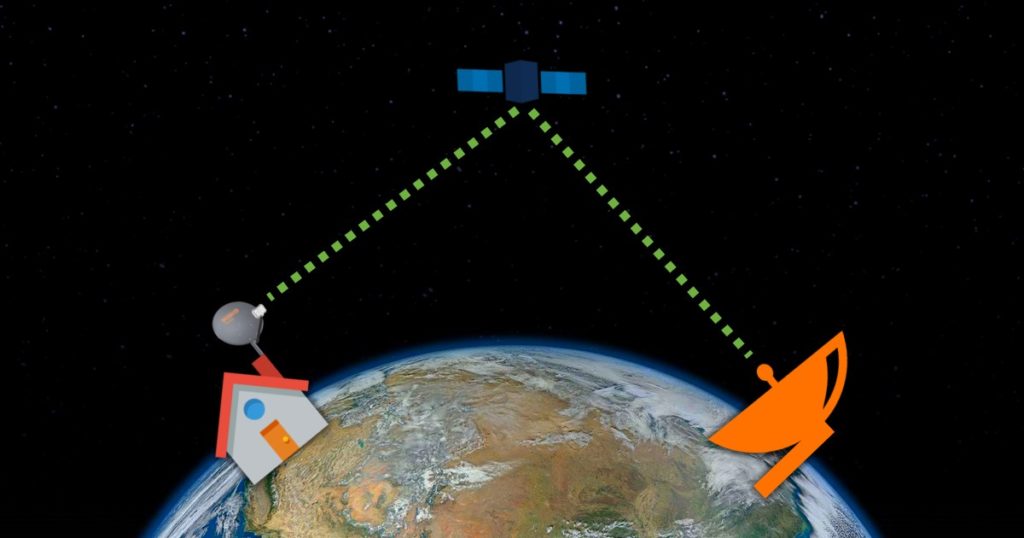
“Yes, we are finally at the stage in history where satellite technology is (pretty much) available to the masses, and at long last actually works at a speed and latency that’s usable, even in the 2020s. But one regime that is considerably more developed than the next generation of satellite data services is green technology – along with the general awareness of the environmental impact of the tech we buy and use. The useful life of these dinky LEO satellites is sub-10 years, according to submissions to the US Federal Communications Commission, and LEO satellites are not really the kind of thing one can throw on the compost heap or take to the council recycling centre.
So, at long last, satellite technology is finally something that really is bringing proper, high-speed, usable internet connectivity to the masses. It will change the lives of the millions of people worldwide who simply cannot make the most of cabled or land-based mobile connectivity.
But expect the debate about green technology to ramp up… along with the moans from all the space agencies around the globe whose kit will have to tiptoe around all this shiny stuff some kilometres up in the sky. ” The Register
Comment: Is anyone familiar with this UK site? I am not. From my own narrowly selfish POV, this is welcome news. I have this site hosted in Iceland where government protectionist policy shields the site from casual US interference. If I had non-US based satellite internet, my communication between here and Iceland would be similarly protected. I also have my own source of electricity. Hmmm. I need a few more years. I know, I know. THEY could always fabricate a charge with which to carry me off. pl
https://www.theregister.com/2021/07/22/satellite_internet_is_taking_over/

Colonel,
The Register is an excellent tech site (mainly computing stuff). I have read it for years and they seem very reliable to me.
I also read and trust The Register. I enjoy their dry British wit.
The Register has a long history of being a decent techie site. There is the occasional odd humor that non-techies misinterpret as serious reporting. They’ve learned to mostly label those news articles, but sometimes things sneak through. They’ll happily report rumors, sometimes labelled as such.
This concern is legitimate, in part because it will be used by losers and competitors to go after winners and successful vendors. The big problem for space is that your mistakes don’t rust away, they keep flying for a long long time. Bad decisions from decades ago still force occasional evasive maneuvers by the ISS.
The related concern is resources, which are also cost related. One example is helium. Each launch uses a bunch. Production depends on long lead high capital commitments. The resource that worries me for Starlink is Xenon. At full operations (steady state launch, operate, and de-orbit at end of life) they will consume a substantial fraction of world production of Xenon. I’m expecting to see some next generation transition to something like Iodine for the low power high efficiency thrusters. Iodine is much easier to get and much more available than Xenon. (But perhaps someone will spend lots of money to increase Xenon production capacity.)
Here is a link to a review by a very tech savvy poster of Starlink ISP, both as regards hardware concerns, as well as service as a provider. He acquired this beta-test Starlink system, while still retaining his cable-based ISP, and this has enabled him to do illuminating side-by-side comparisons. Lots here to see, good stuff:
https://www.jeffgeerling.com/blog/2021/spacexs-starlink-review-four-months
The Register has been around for well over two decades. I remember reading it before Y2K. It’s always been good. Satellite internet has been around a while. It’s either expensive or limited or both, but it’s come a long way since the Y2K era. Starlink will definitely kick it up. China is developing a similar network. When Starlink can operate from a mobile handset, it will be unstoppable.
Traveling in the Antarctic a few years ago, we were told we were entering difficult wifi territory. due to the satellite beams bouncing beyond our current location on the southern most curve of the earth. I am picturing Mike Lindell My Pillow ads careening somewhere off to Alpha Centuri, instead of Palmer Station.